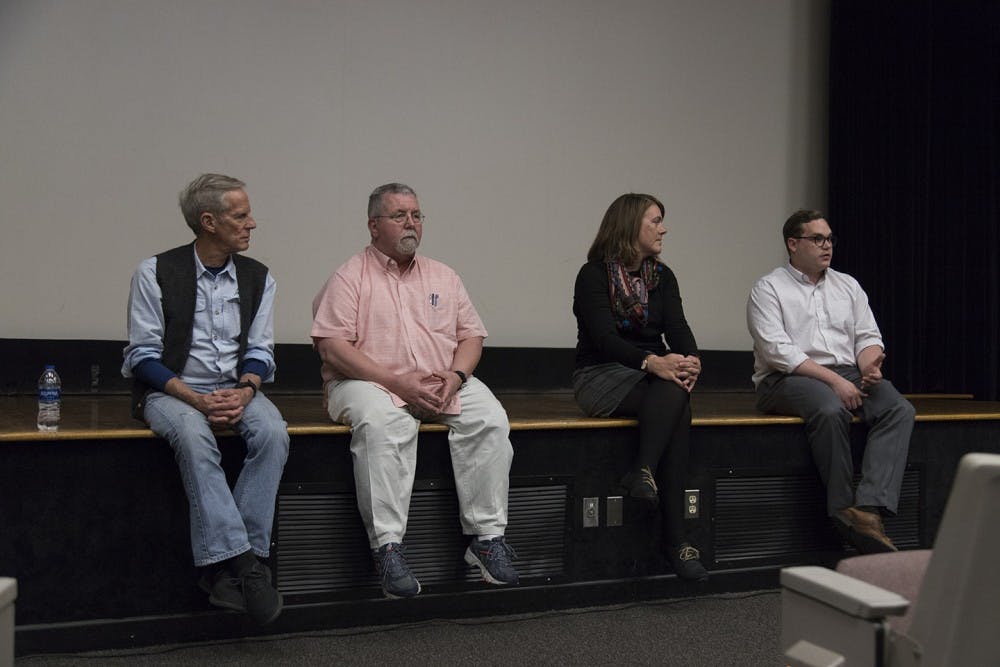In the last 30 years, 50 percent of the world’s coral reefs have died.
The Graduate Association of Biological Sciences and the Graduate Organization of Earth, Ocean, and Environment presented "Chasing Coral," a documentary focused on the conditions of coral reefs around the world, in the Russell House Theatre on April 16. Following the showing, there was a panel discussion.
The documentary explained that reefs are dying because of coral bleaching, a process where the coral reef turns white and begins to die. This is caused by rising temperatures in the ocean that damage coral reefs and eventually kill them.
Jay Pinckney, the director of Belle W. Baruch Institute for Marine and Coastal Sciences at the University of South Carolina, explained that ocean’s temperature is much like the human body’s temperature.
“If you have a natural body temperature of 98.6, you feel fine; when you have a body temperature of 102 you don’t feel so good,” Pinckney said.
Phillip Dustan, an ecology and marine biology professor at the College of Charleston and scientist featured in "Chasing Coral," also spoke about the damages inflicted on coral reefs. Dustan suggests postponing plans of reproducing until a later age, such as 30, to reduce the number of people on Earth and their carbon footprint.
"[The world can] lengthen the generation time so we drive the population down," he said.
Eilea Knotts, the event coordinator, was mostly influenced by the approach the documentary advised viewers to take when discussing the condition of the ocean.
“If you’re going to get across a really important piece of information, you should approach it like advertising,” Knotts said.
Richard Vevers, the main voice in the documentary, was previously an advertising agent and he said he took his advertising expertise with him, in his exploration of coral reefs and their fate.
“It’s one of the rarest events in nature happening and everyone’s just oblivious to it,” Vevers said.
To combat the rising heat, the corals transformed into an array of vibrant colors by producing a chemical sunscreen.
“It feels as if it’s the corals saying, 'Look at me, please notice,'” Vevers said.
Ruth Gates, the director of the Hawaii Institute of Marine Biology and coral reef biologist, stressed the importance of realizing the condition she says the coral reefs are in the documentary.
“We will see the eradication of an entire ecosystem in our lifespan,” Gates said.
Many of the characters in the documentary revealed how emotional it was to photograph the coral reef's phases of death, and Pinckney stressed the important of the screening and panel discussion.
“I think it really brings a very emotional perspective on what it means for global change and global warming, what its impacts will be,” Pinckney said.
Maeve Snyder, a master's candidate in biological sciences, is writing a thesis on climate change. Snyder said the panel discussion gave the event a local addition to the documentary, which she said was important. She expressed her disappointment at the chance of the extinction of coral reefs in her lifetime.
“It’s really, honestly, emotionally hard to deal with to think about, like this is not something that maybe I would get to experience,” Snyder said.

